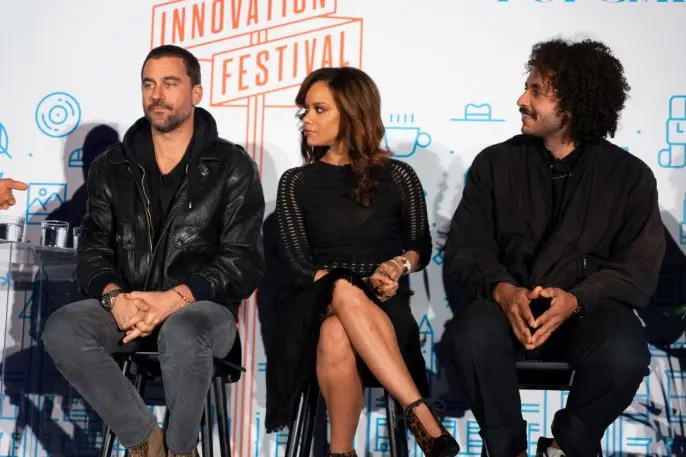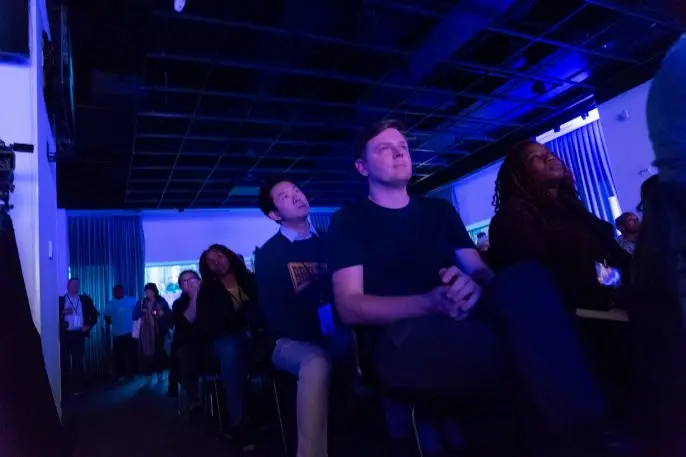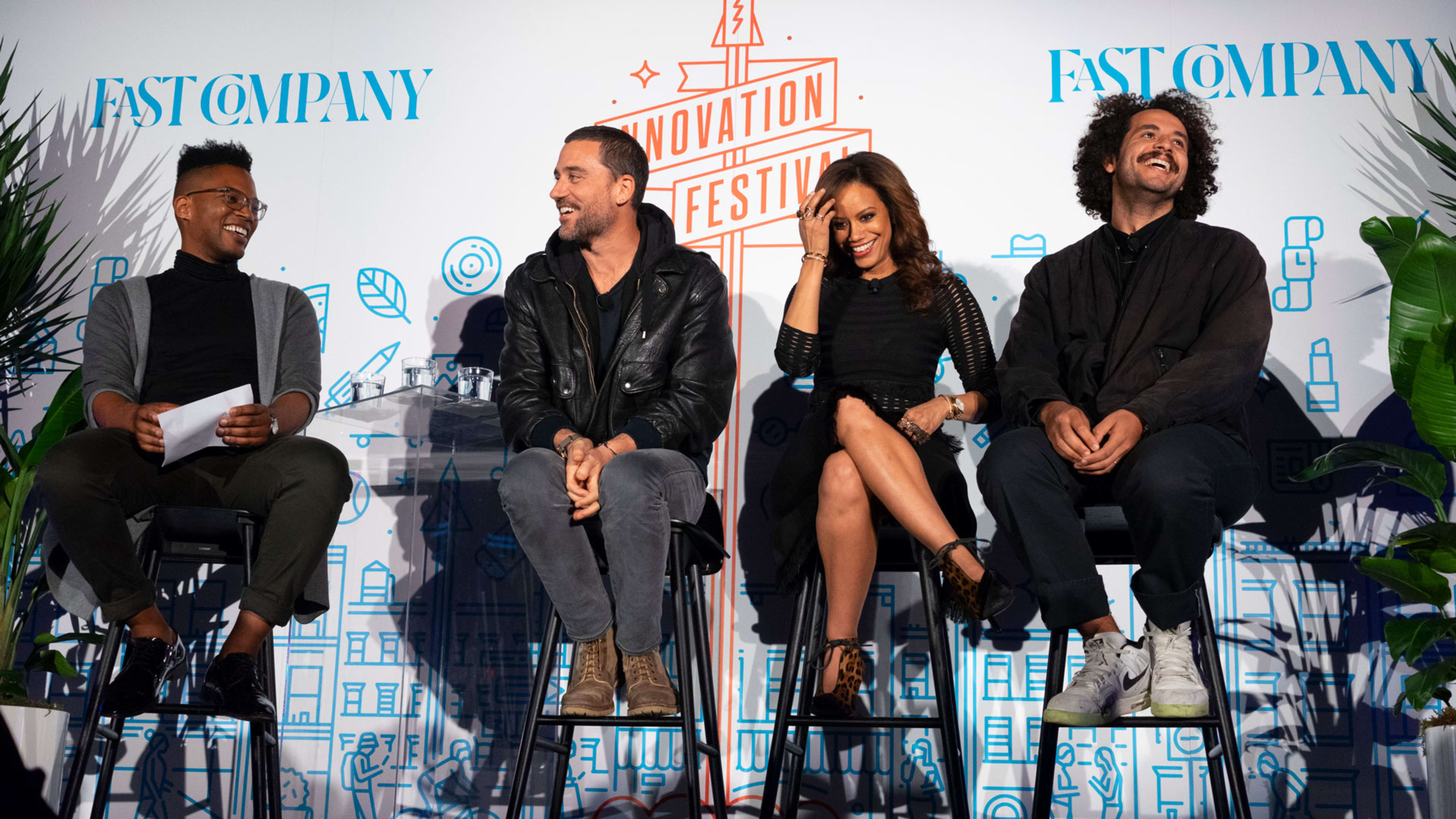“We have over 10 million followers on Facebook, Instagram” and other social platforms, Nameless Network CEO Kareem Rahma told a crowd at the Fast Company Innovation Festival on Wednesday. “The question was, how do we get them to buy tickets to something in the real world?”
The answer was the Museum of Pizza, an experiential pop-up museum slash pizza joint that opened in Brooklyn earlier this month.
Rahma explained to Fast Company associate editor K.C. Ifeanyi that he chose pizza as the pop-up’s theme because “we knew it would appeal to a mass audience that we already reach,” through Nameless’s mobile-focused digital videos. The company bills itself as the Discovery Channel “reimagined for young, internet-savvy mobile media consumers” and reaches more than 300 million users a month, most of whom are under 34 years old.

“For four years we’ve been strangled by Google’s algorithm, Facebook’s algorithm. And Twitter has this new, weird feed that’s really confusing,” said Rahma, who was joined on the panel by RYOT cofounder Bryn Mooser and Tricia Clarke-Stone, CEO of WP Narrative, in a wide-ranging discussion that touched on the game-changing arrival of 5G, the first-mover advantage of using new platforms like IGTV, and the erosion of trust on social media platforms.
“All of this algorithm dependency strangles creativity,” Rahma said.

When the discussion then turned to creating content that can be exploited on multiple platforms, Rahma brought up Nameless TV’s Webby-nominated series Everything Explained that makes common phenomena understandable, such as “what happens to your body when you fall asleep drunk.”
The series has 4 million followers on Facebook and is now also a podcast. “We’re working with some brands and bringing it to audio,” Rahma said. “So you think about it as a piece of IP, and if it hits, you spin it off onto other platforms.”
As for working with brands, Clarke-Stone distilled her ethos down to three things: insight, foresight, and taste.
“Insight is, do we really know the target we’re speaking to? Foresight is, I know what’s next, and I have a good sense of where we can take it. And taste is having good enough taste to make stuff that’s amazing.”
She smiled. “It’s easier said than done.”
Recognize your brand’s excellence by applying to this year’s Brands That Matter Awards before the early-rate deadline, May 3.
